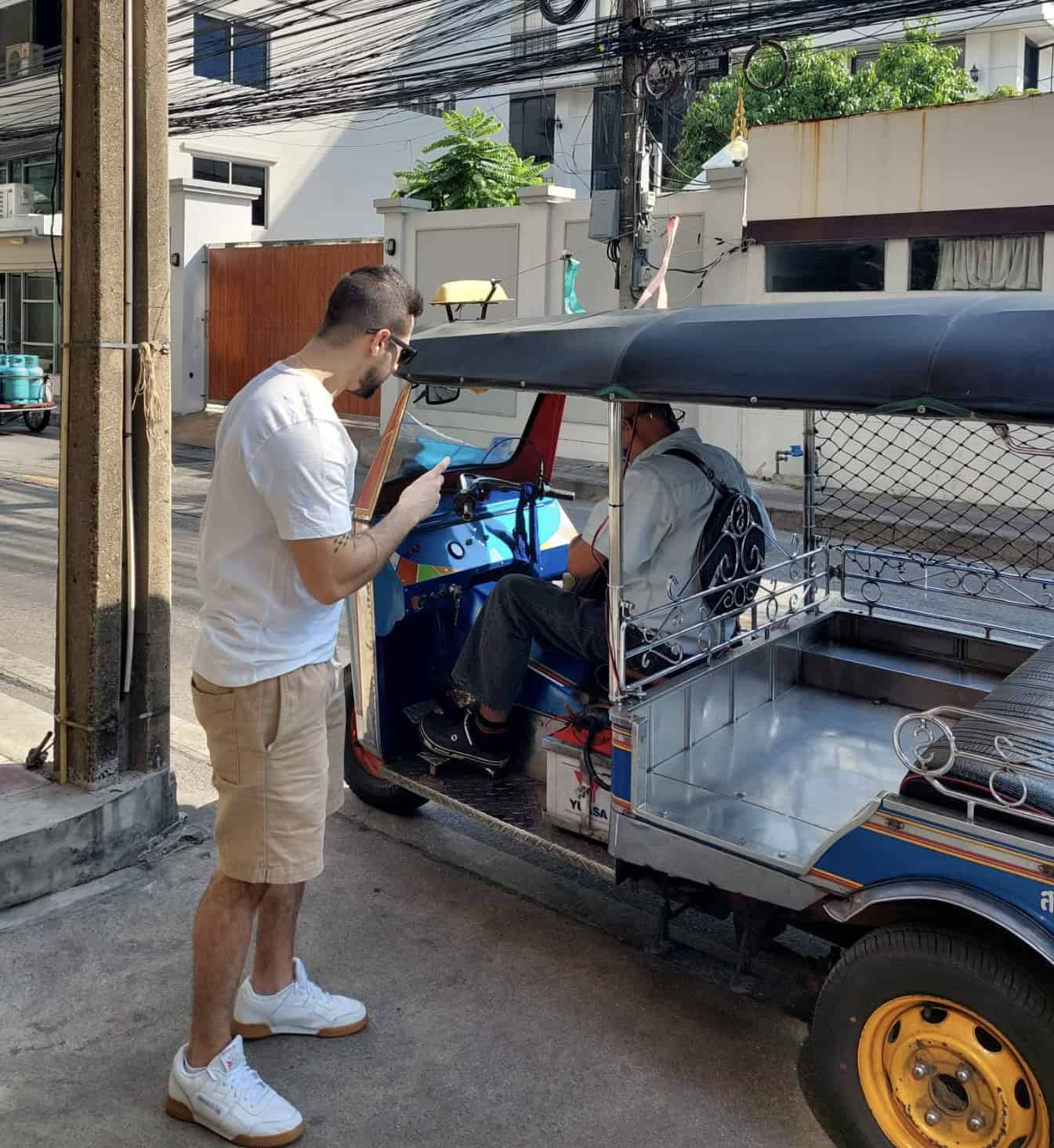11 Thai Phrases to Know for Your Thailand Trip
Thailand is one of the most rewarding countries to travel through, warm people, rich culture, insane food, and a landscape that flips between islands and jungle like it’s no big deal.
But if you really want to connect with the country beyond just what you see and eat, knowing a few Thai phrases to know before you arrive can go a long way for your trip.
We’re not talking fluency here. Just basic, useful Thai expressions that make it easier to get around, show respect, and make locals smile.
Because here’s the thing: Thai people don’t expect you to speak the language perfectly, but they do appreciate when you try.
This list isn’t about being perfect. It’s about bridging the gap, whether you’re ordering food at a night market, asking for directions, or just saying hello as you dine at a small restaurant in an alleyway in Bangkok.
Hello: Sa-Wat-Dee
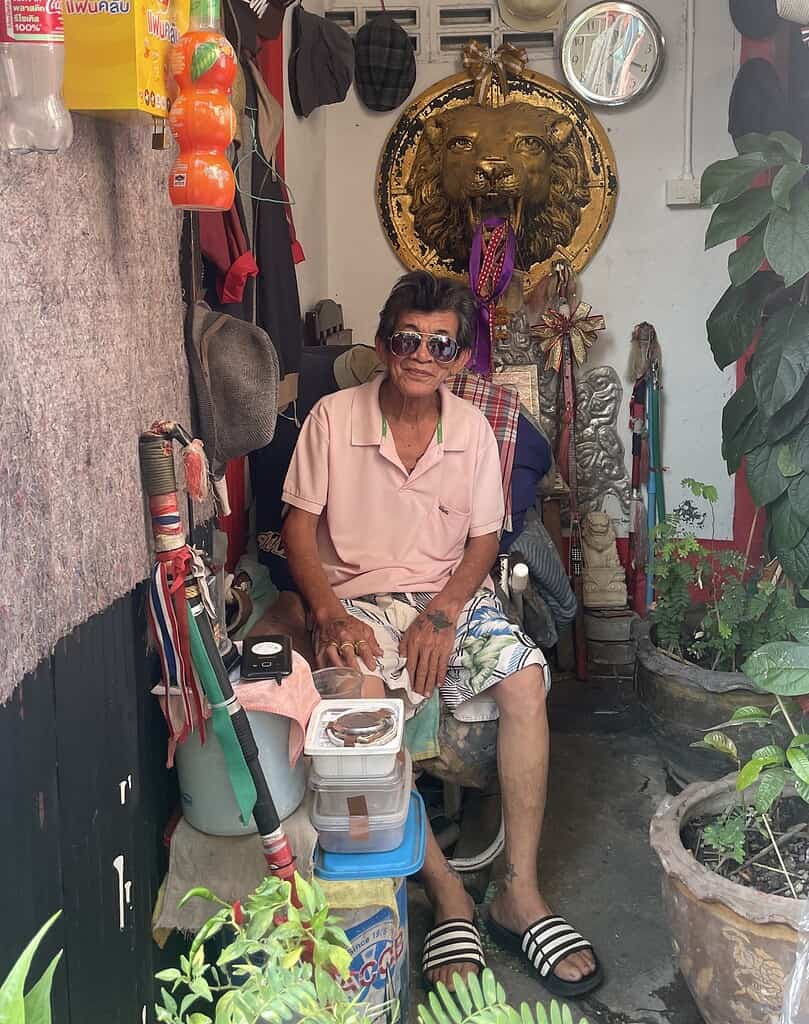
Let’s start with the most essential phrase you’ll use daily in Thailand: Sa-Wat-Dee, which means “Hello.”
It’s polite, simple, and can be used any time of day, morning, afternoon, or evening.
But here’s the key detail: Thai greetings change slightly depending on your gender.
- If you’re Male, say: Sa-Wat-Dee Kráp
- If you’re Female, say: Sa-Wat-Dee Kâ
Adding “kráp” or “kâ” at the end isn’t optional, it’s a standard part of Thai politeness and respect. You’ll hear it used constantly, and once you get used to it, it becomes second nature.
Also, it’s common (but not mandatory for tourists) to pair this greeting with a wai, placing your palms together at chest level and giving a small bow.
It’s a respectful gesture, especially when greeting older locals or people in formal roles, and an important part of Thai etiquette to know of.
Thank You: Khob Khun
If there’s one phrase that will instantly earn you smiles throughout Thailand, it’s Khop Khun, which means “Thank you.”
Whether someone helps you with directions, hands you your street food, or just shows you kindness, using this simple phrase shows respect and appreciation.
Just like with greetings, you’ll want to adjust the ending based on your gender:
- If you’re Male, say: Khop Khun Kráp
- If you’re Female, say: Khop Khun Kâ
The endings “kráp” and “kâ” aren’t just for politeness, they’re also gender-specific.
Thai speakers add kráp (for men) or kâ (for women) to the end of sentences to show respect, especially in public or formal settings.
Even if your pronunciation isn’t perfect, using the correct ending based on your gender shows cultural awareness, and Thais really appreciate the effort.
Not Spicy: Mai Phet
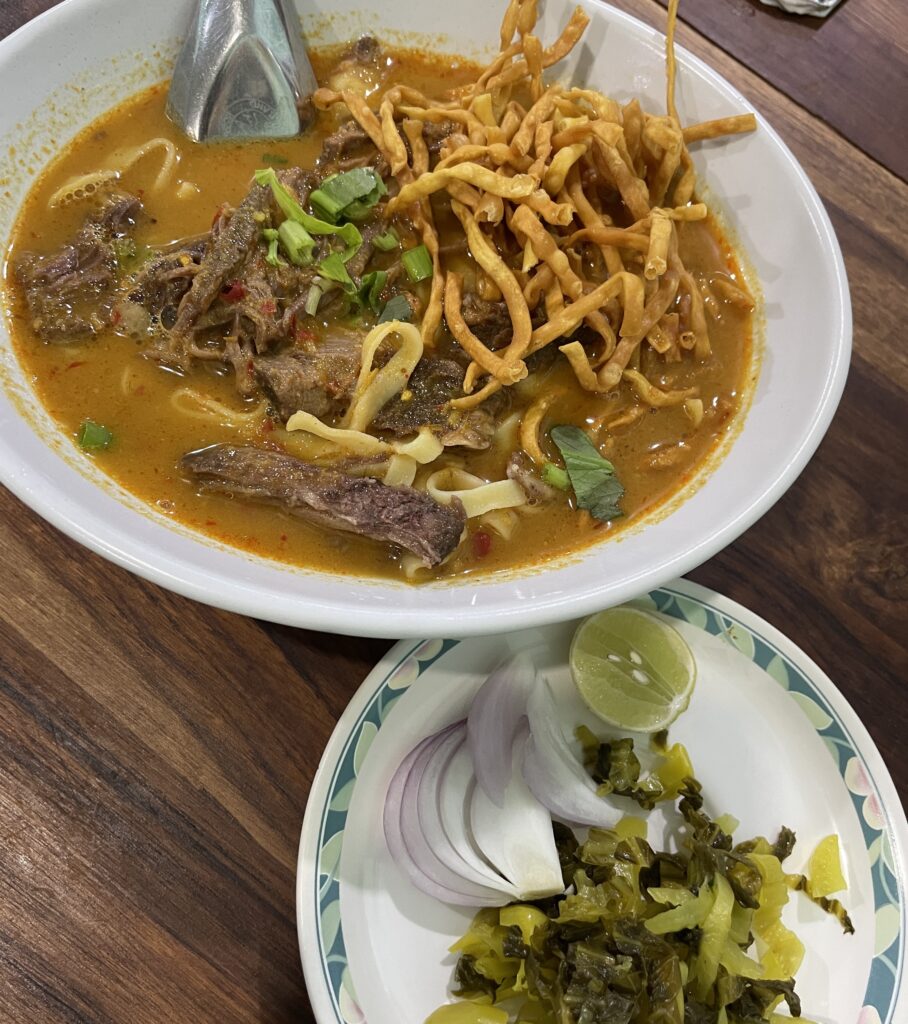
- Phrase: Mai Phet
- Pronunciation: My Pet (yep, like the word “pet” — think My Pet Dog)
Thai food is famous for its bold flavors, and yes, that often includes some serious heat. You might’ve tried Thai food back home, but the spice levels in Thailand hit differently.
If you don’t have a high spice tolerance, you’ll want to get familiar with the phrase Mai Phet, which means “not spicy.”
In many tourist areas, locals are used to adjusting spice levels for foreigners and might even ask you about it when you order.
But don’t assume they always will, and definitely don’t assume that a dish is mild just because it looks harmless.
Some of Thailand’s most known dishes pack a punch. Tom Yum (hot and sour soup) is notoriously spicy, and even Pad Thai or Pad Krapow (Thai basil stir fry) can come with a chili-loaded kick depending on where you are.
This is especially useful if you’re visiting Phuket, where regional cuisine is known to be the spiciest in the country.
So yeah, if you can’t handle the heat, Mai Phet might become your new best friend.
How Much?: Tao Rai
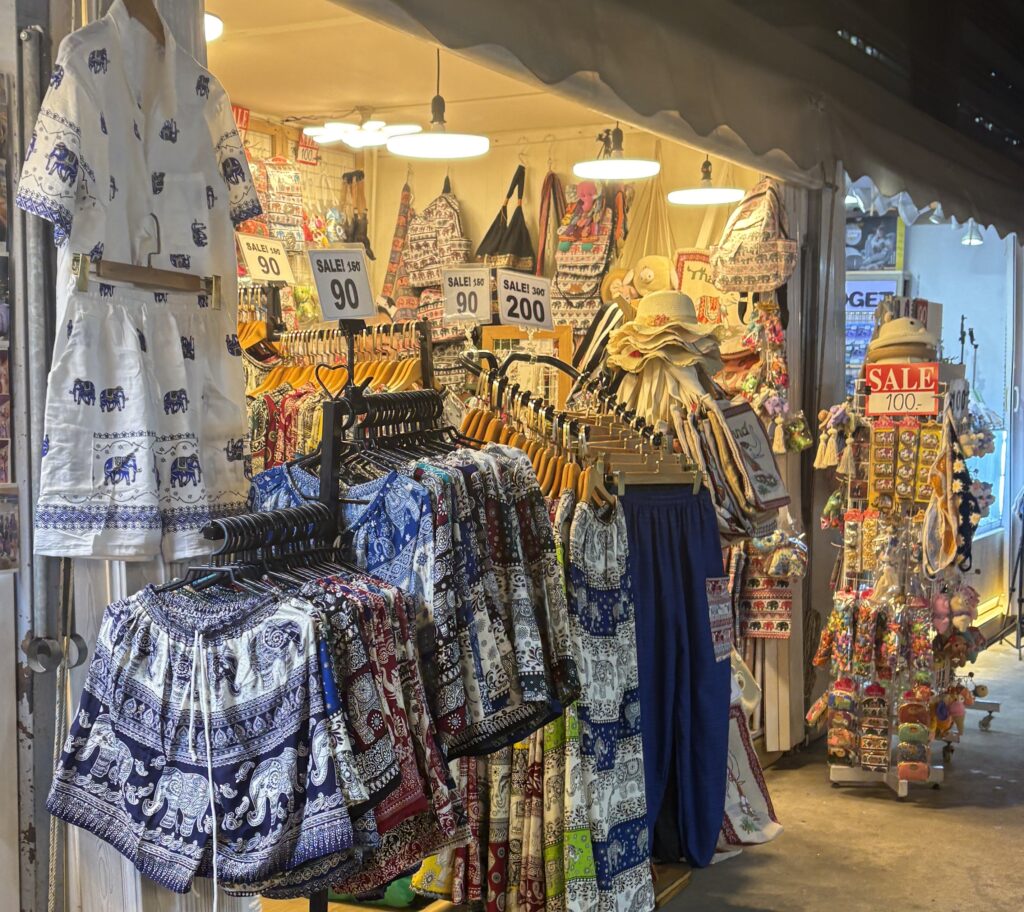
- Phrase: Tao Rai
- Pronunciation: tao-rai
If you’re planning to shop in local markets, Grab a tuk-tuk, or even just buy snacks from a street vendor, this is one of the most useful Thai phrases to know.
By the way when negotiating your tuk tuk ride, make sure to avoid any common scams in Thailand.
Tao Rai? simply means “How much?”, and it’s a phrase you’ll find yourself using often, especially in places where prices aren’t clearly listed.
While many tourist-heavy spots in Thailand have vendors who speak some English, don’t count on it, particularly in smaller towns or more local areas.
And even when English is spoken, using Tao Rai is a simple way to show that you’re making an effort to engage with the culture.
Bonus tip? If you’re shopping somewhere like Chatuchak Market or a floating market, learning to ask Tao Rai may even help when negotiating a better deal. By the way, here are a few must visit night markets in Thailand you can’t miss!
Where is the Bathroom?: Hong nam yoo Tee Nai
- Phrase: Hong Nam Yoo Tee Nai
- Pronunciation: hong nahm yoo tee nai
This is one of those essential phrases that you won’t realize you need until, well, you really need it.
Whether you’re wandering through a bustling market, hanging out at a beach bar, or exploring temples, public restrooms aren’t always clearly marked, especially outside major cities.
While many locals will understand the word “toilet,” using the Thai phrase Hong Nam Yoo Tee Nai not only shows cultural effort, but can help speed things along if someone doesn’t speak English.
Most Thai people are incredibly kind and will happily point you in the right direction.
Also, don’t expect Western-style restrooms everywhere. In more rural areas or even some older public facilities, you might find squat toilets and bring-your-own toilet paper situations, so having this phrase handy (and a travel pack of tissues) is never a bad idea.
Excuse Me & Sorry: Khor Thot

- Phrase: Khor Thot
- Pronunciation: Kor Tôt (like “core” + “taught”)
Whether you’re bumping into someone in a crowded market, trying to get someone’s attention politely, or needing to apologize, Khor Thot is one of the most versatile Thai phrases to know.
It essentially means both “excuse me” and “sorry,” depending on the context.
Use it when weaving through a tight crowd, when reaching past someone at a food stall, or if you accidentally misstep, which, let’s be honest, happens a lot when you’re navigating unfamiliar places.
You don’t need to overuse it, but dropping a respectful Khor Thot in the right moment can go a long way in showing locals that you’re trying to be courteous, something deeply appreciated in Thai culture.
Yes & No: Chai & Mai Chai
- Phrase: Chai / Mai Chai
- Pronunciation: chai / mai chai
In Thai, Chai is often used similarly to “Yes” in English, while Mai Chai means “No” — literally translating as “not yes.” But it’s not always as straightforward as just picking one or the other.
You’ll sometimes hear people say Chai twice in a row — often as a casual affirmation or to soften what they’re agreeing to. It’s like saying, “Yes, yes” in English, used for emphasis or to confirm something more firmly.
Now, because Thai doesn’t use “Yes/No” in the same way English does, native speakers often answer questions by repeating the verb or main content instead of just “chai.” But for travelers, Chai and Mai Chai work well when used simply and respectfully, especially when preceded by kráp or kâ (depending on your gender).
Use Chai to confirm something like “yes, that’s right,” and Mai Chai to gently or politely decline or correct.
This pair is a must-know in markets, conversations, and when navigating yes/no questions with locals.
Check, Please: Gep Ngern Duay
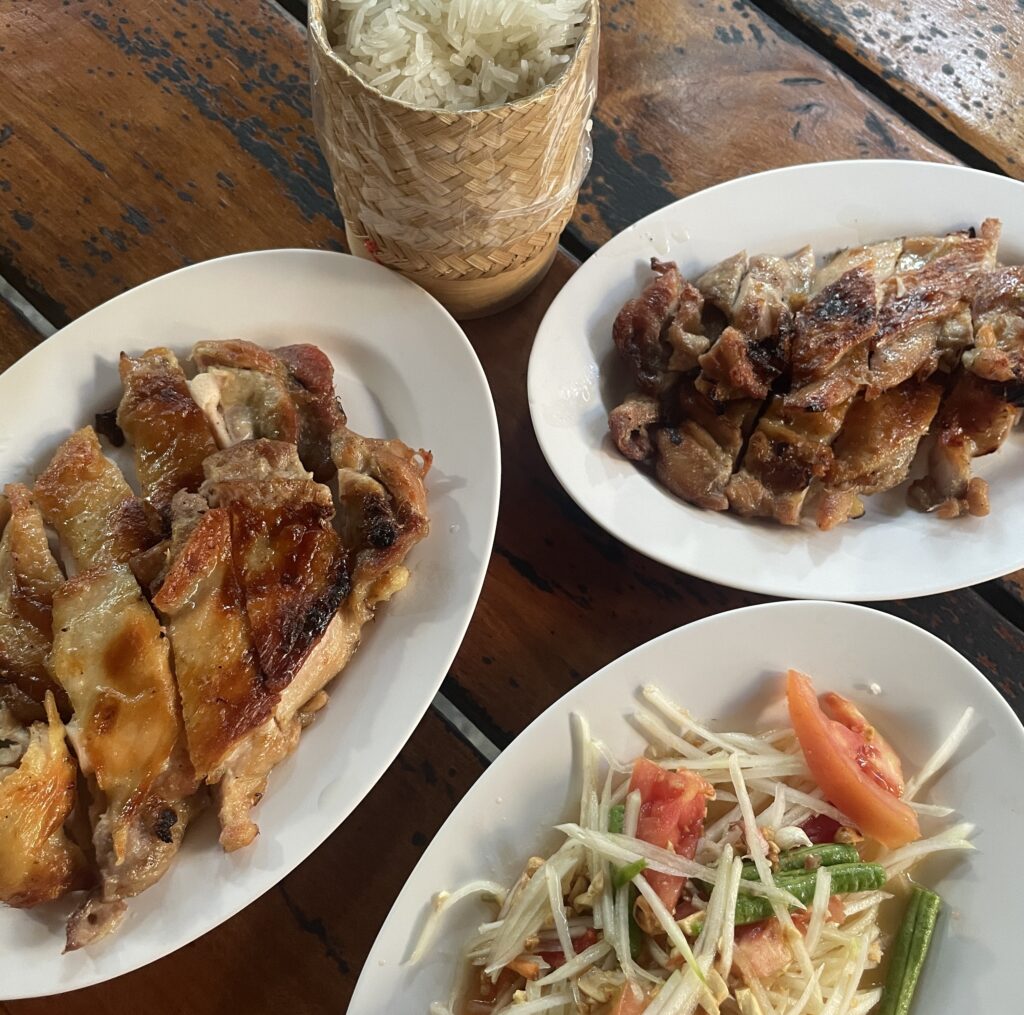
- Phrase: Gep Ngern Duay
- Pronunciation: Gep ngern doo-ai
When you’re finished eating at a restaurant in Thailand, you’ll need this phrase to ask for the bill. Gep Ngern Duay literally means “collect the money, please,” and it’s the polite, commonly used way to say “check, please” in Thai.
Don’t expect your server to bring the bill without being asked, in many Thai eateries, especially smaller or more local spots, it’s typical to sit and relax after a meal until you specifically request it. Using this phrase shows both politeness and cultural awareness.
Even in places where staff speak English, making the effort to say Gep Ngern Duay will usually earn you a smile or nod of appreciation.
It’s also a handy phrase to know at food courts, casual restaurants, or when you’re enjoying must try dishes in Thailand and want to wrap up without awkwardly waving someone down.
And as always, ending it with kráp (for men) or kâ (for women) adds a respectful tone.
I Don’t Understand: Mai Kao Jai
- Phrase: Mai Kao Jai
- Pronunciation: Mai cow jai
Sometimes language barriers happen, and that’s okay. Whether someone’s speaking Thai too quickly or using unfamiliar vocabulary, Mai Kao Jai simply means “I don’t understand.”
It’s one of the most practical phrases to have on hand as a traveler, especially when exploring local areas where English isn’t widely spoken.
Saying Mai Kao Jai with a polite smile shows that you’re trying to engage, not just tuning out or ignoring the situation.
You can also pair it with a polite ending like kráp (for males) or kâ (for females) to show extra respect. For example, Mai Kao Jai kráp or Mai Kao Jai kâ.
Use this phrase when asking for directions, speaking with hotel or transportation staff, or even just trying to understand a menu, it’s a great way to signal you need a little extra help.
Delicious: A-roi
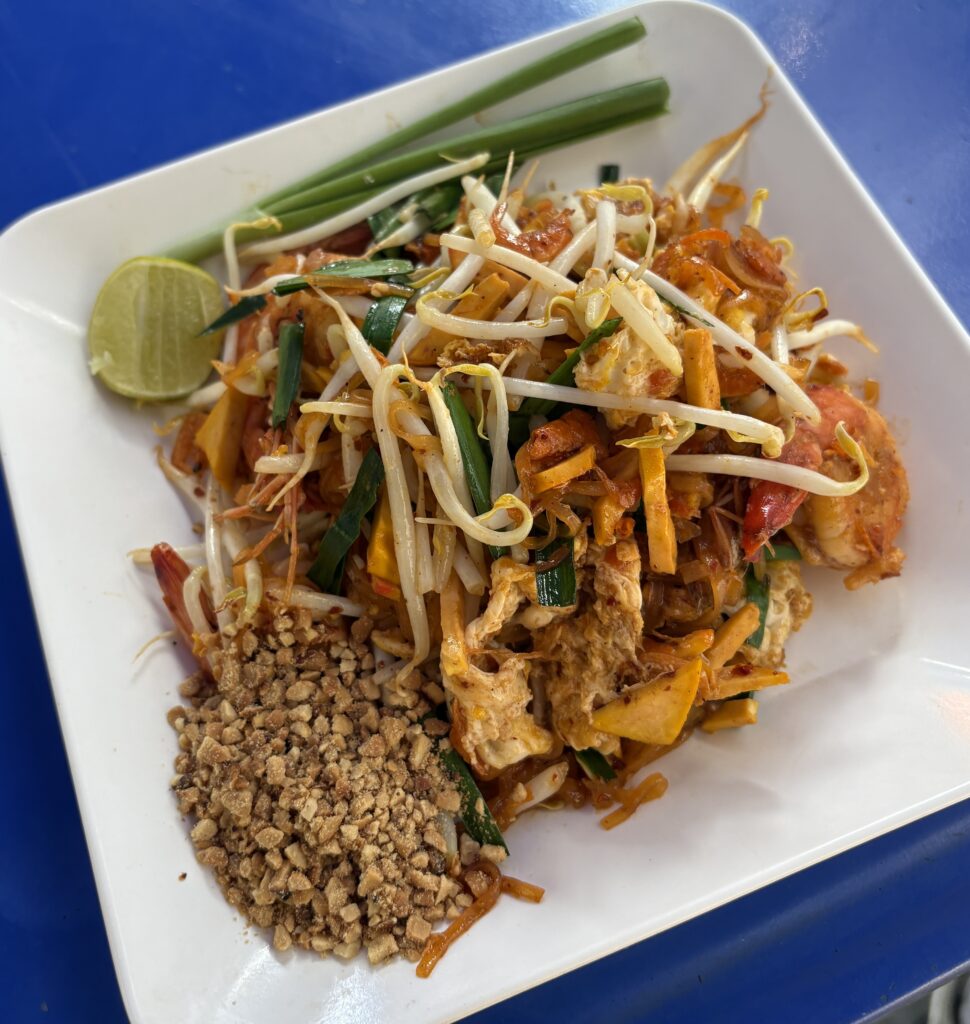
- Phrase: A-Roi
- Pronunciation: Ah-roy
If there’s one word you’ll want to use over and over again in Thailand — it’s this one. A-Roi means “delicious,” and whether you’re slurping noodles at a street cart, enjoying mango sticky rice, or sitting down at a beachside seafood spot, this simple word goes a long way.
Thais take great pride in their food, and complimenting a meal with a genuine A-Roi is always appreciated.
You’ll often see locals light up when they hear a foreigner using it, it’s a small gesture that bridges language barriers in the best way possible.
You can also kick it up a notch and sound even more local when dining, say these:
- A-Roi Mak: “Very delicious”
- A-Roi Ching Ching: “Really, really delicious”
I personally love saying A-Roi Ching Ching, not just for the meaning, but because it sounds so fun to say. And the reaction? Priceless. Seeing locals flash a big smile when I compliment their food never gets old.
This phrase comes in handy whenever you’re enjoying Thailand’s incredible cuisine, whether it’s a fiery bowl of Tom Yum, a savory Thai omelette, or sweet mango sticky rice.
Dropping an A-Roi is one of those effortless ways to connect with locals and show your appreciation for their food culture.
Goodbye: La Gorn
- Phrase: La Gòn
- Pronunciation: la-gon
La Gòn is the casual way to say “Goodbye” in Thai, friendly, polite, and used in most everyday situations.
You’ll hear it from street vendors, tuk-tuk drivers, or even hotel staff as you head out for the day.
If you want to be a little more formal or extra polite, you can say La Gòn Ná, adding a softener at the end.
And of course, like most Thai phrases, you can follow it with kráp or kâ depending on your gender for added respect.
It’s simple, but ending your interactions with a cheerful La Gòn! leaves a positive impression, especially after a great meal, helpful conversation, or a day of exploring.
Tips for Pronouncing Thai Words Correctly
Thai is a tonal language, which means pronunciation can impact meaning more than in English.
But don’t stress, locals don’t expect you to be fluent. They genuinely appreciate the effort, even if your pronunciation isn’t perfect.
That said, a few pronunciation tips will definitely help you sound more natural and be better understood:
- “Ph” is pronounced like a “P” — So “Phuket” sounds like “Poo-ket,” not “Foo-ket.”
- “R” can sound like an “L” — You might hear “ramen” pronounced more like “lamen.” It’s subtle but good to be aware of.
- Tone matters, but effort matters more — Thai is tonal, and some words change meaning depending on pitch. But as a tourist, people generally understand you through context and your willingness to try.
- Listen for repetition — In casual speech, locals often repeat short words (like chai chai) for emphasis or friendliness. It’s informal but totally normal.
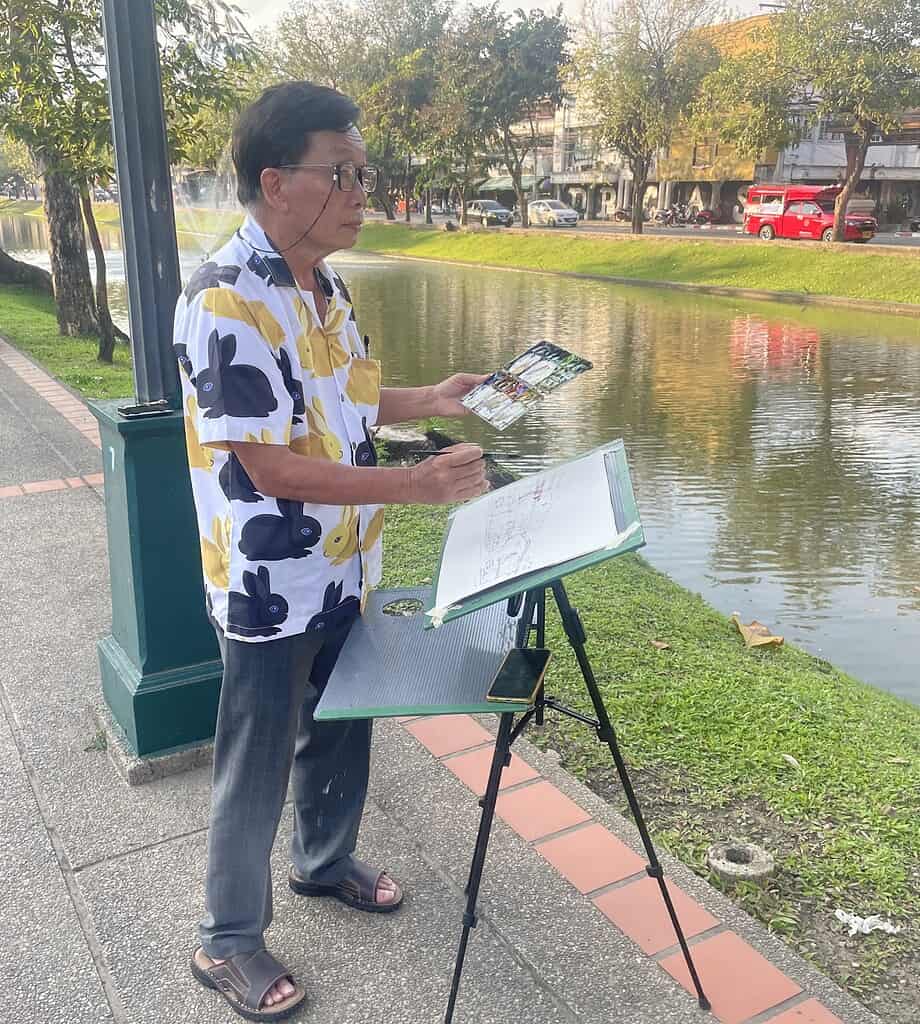
Should You Know Thai Phrases Before Visiting Thailand?
Here’s the thing, you don’t need to learn Thai to visit. Thailand is one of the top 10 most visited countries in the world, and with that kind of tourism comes accessibility.
In most popular areas, Bangkok, Phuket, Chiang Mai, Koh Samui, you’ll find that many Thais speak a bit of English, at least enough for basics like ordering food or giving directions.
So yes, Thailand is surprisingly easy to navigate, even if you never speak a word of Thai. However, learning just a few phrases can go a long way.
It’s not really about necessity, it’s about connection. When you say “Khàawp Khun” instead of “thank you,” or “Mai Phet” to skip the spice, you’re showing locals that you care enough to make an effort. Even if your pronunciation is slightly off, it’s the effort that gets appreciated.
I’ve had so many moments especially in smaller towns or with street vendors — where a simple Thai phrase sparked a smile, a laugh, or even a conversation I wouldn’t have had otherwise. That human connection throughout my travels? It’s priceless.
Put in a bit of effort, I like to go by the words of Anthony Bourdain, don’t be a tourist, be a traveler. In the mean time, besides these Thai phrases, here’s a few travel tips for Thailand I also recommend!
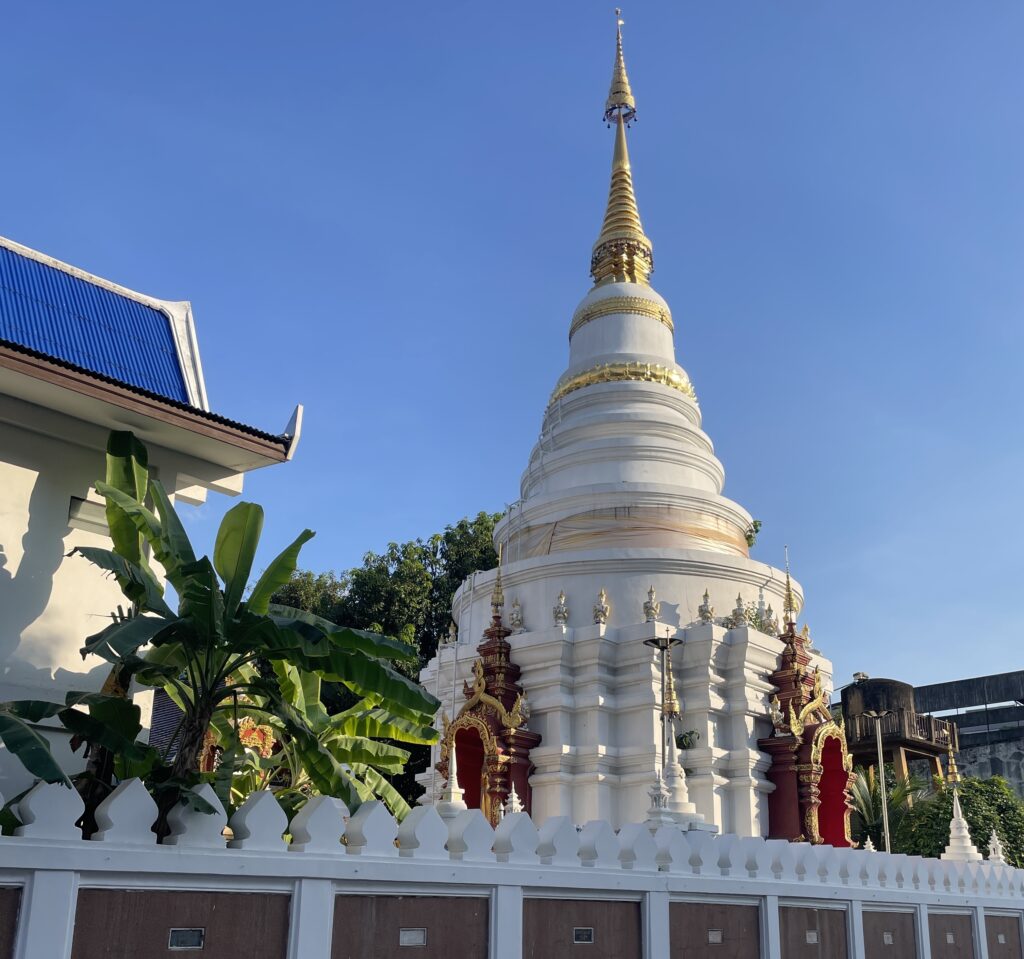
Do I need to speak Thai to visit Thailand?
No, you don’t need to speak Thai, especially in tourist-heavy areas like Bangkok, Phuket, or Chiang Mai, where many locals speak basic English. That said, learning a few simple Thai phrases can go a long way in showing respect and making deeper connections with locals.
Should I learn male or female Thai phrases?
In Thai, politeness particles like kráp (for males) and kâ (for females) are gender-specific. Use the one that matches your gender, it’s a small detail, but an important one in Thai communication.
How important is pronunciation when speaking Thai?
Thai is a tonal language, so pronunciation does matter. However, most locals understand that visitors may not get it perfectly right. If you say the phrase respectfully and with a smile, your effort will almost always be appreciated.
Will knowing basic Thai phrases help me get better prices at markets?
Sometimes, yes. Using simple Thai phrases like Tao Rai? (“How much?”) can show that you’re making an effort, which may lead to friendlier interactions or even better deals, especially in local markets or non-touristy areas.

